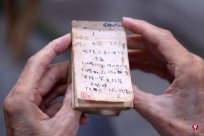Source: Bloomberg
Author: John Cheng
The stimulus measures issued by the government have disappointed investors, and China's assets have further intensified.
In the four trading days of the past week, the Hang Seng State -owned Enterprise Index has plummeted by more than 6%, the biggest decline in a single week since March.The CSI 300 Index fell 2.5%on the three trading days before the Dragon Boat Festival.The renminbi is degraded to the low position since November last year, and analysts expect that there will be further downlink space in the future.
As the economic recovery loses its momentum, the government has not introduced great policy support, which has caused pessimism to start spreading in the market.The Beijing side clearly states that any loose measures will be targeted and restrained, which means that the days when large -scale stimulation drives the soaring asset prices is gone.
"In my opinion, this is expected mismatch," said Zhikai Chen, the head of Asian and global emerging market stocks in Paris, France."This is a very embarrassing situation, with small positions, low valuations, and emotional pessimism."
A analysis of Morgan Stanley's quantitative team shows that active multi -headed funds in May and June are still the net seller of Chinese growth stocks and technology stocks.At the same time, they found that hedge funds have been increasing their holdings, and the size of the short position in June increased by 32%.
Sure enough, China has launched some stimulating economic measures, including a series of actions to reduce interest rates and extending the purchase tax reduction policy for new energy vehicles.However, the market responded coldly, and traders doubted whether these measures could be rejuvenated to record the level of debt, the slowdown in global demand, and the weakened economy of corporate and consumer confidence.
"This shows that although the policy has been relaxed, the market cannot achieve sustainable rise," said Eli Lee, the director of investment strategy in Singapore."Decision makers still make up the long -term rising momentum of leverage in the economy. The gradual loose approach they adopted may not have a significant impact."
However, the bulls are not disarmined.In a report on June 19, Kinger Lau and other Goldman Sachs strategist pointed out that considering the current low valuation, the tactical trading window of Chinese stocks has been "opened again."These strategists recommend buying loose beneficiaries, artificial intelligence concept stocks, and state -owned enterprise stocks.The current price -earnings ratio of the MSCI China index is 10.1 times, a five -year average of about 12.1 times.
"The market is very pessimistic, but I think this has been largely reflected in the price," Citi Global Wealth Investments Asia -Pacific Investment Strategy Director Ken Peng said at a press conference this week."The prospects for economic growth in the second half of the year will improve, but the pace will be relatively slow."
The expectations of the government's introduction of more stimulating measures still exist, perhaps after the meeting of the Central Political Bureau of the Mainland Government in July.Some analysts said that the depreciation of the renminbi may also be a form of currency loose to boost export demand.
Before the next major stimulus measures (if so), traders will pay attention to the more bleak Chinese economy and corporate profit prospects.Due to export, credit, retail sales, etc., a series of data is inferior to expected, JP Morgan Chase, UBS, Standard Chartered, and Citi have recently lowered their expectations for China's economic growth in 2023 to 5.5%or lower.



